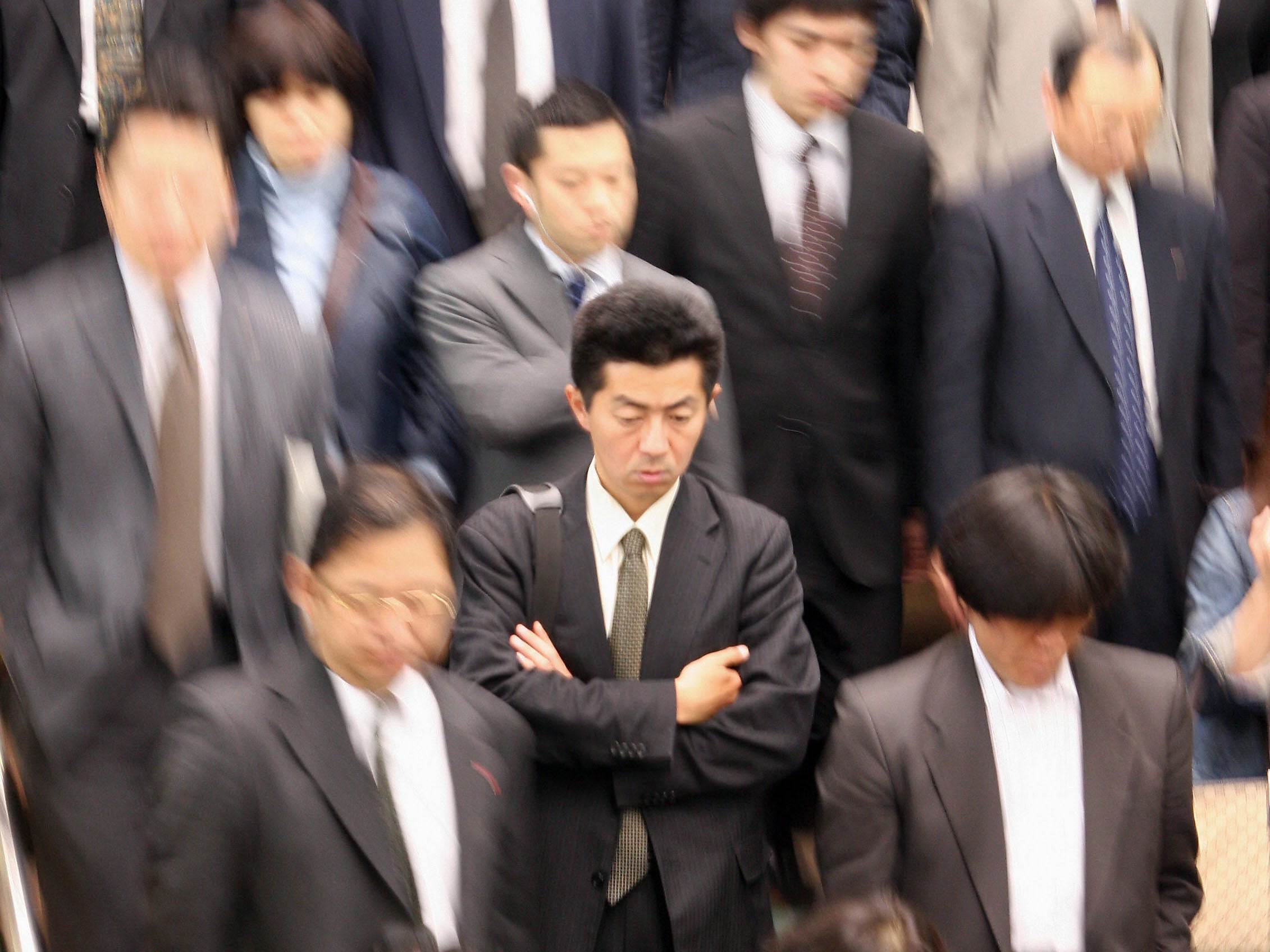Japanese government tells people to stop overworking to combat death from excessive hours
High-profile suicide cases prompt calls for dramatic shift in Japan’s work culture

Your support helps us to tell the story
From reproductive rights to climate change to Big Tech, The Independent is on the ground when the story is developing. Whether it's investigating the financials of Elon Musk's pro-Trump PAC or producing our latest documentary, 'The A Word', which shines a light on the American women fighting for reproductive rights, we know how important it is to parse out the facts from the messaging.
At such a critical moment in US history, we need reporters on the ground. Your donation allows us to keep sending journalists to speak to both sides of the story.
The Independent is trusted by Americans across the entire political spectrum. And unlike many other quality news outlets, we choose not to lock Americans out of our reporting and analysis with paywalls. We believe quality journalism should be available to everyone, paid for by those who can afford it.
Your support makes all the difference.The Japanese government has announced measures to limit the amount of overtime employees can do – in an attempt to stop people literally working themselves to death.
A fifth of Japan’s workforce are at risk of death by overwork, known as karoshi, as they work more than 80 hours of overtime each month, according to a government survey.
And several high-profile cases, such as the death of an advertising agency employee who was working 100 extra hours a month before she took her own life, have prompted calls for a dramatic shift in Japan’s work culture.
Prime Minister Shinzo Abe is said to be seeking to impose a cap on the number of overtime hours people can work, and a government scheme called “Premium Friday” is set to launch in February.
The campaign, spearheaded by the Japan Business Federation, will allow workers to leave the office early on the last Friday of every month.
But critics have said this will not do enough to encourage a better work-life balance, especially as the Japan Business Federation has relatively few members – 1,300 companies from the country’s over 2.5 million registered businesses, according to Fortune magazine.
Japan needs to “end of the norm of long working hours so people can balance their lives with things like raising a child or taking care of the elderly“, Bloomberg reported government spokesperson Yoshihide Suga as saying.
The labour ministry has referred Mitsubishi, one of Japan's biggest companies, to prosecutors on suspicion of forcing a 31-year-old male employee to do excessive overtime.
And Tadashi Ishii, the President of advertising giant Dentsu, stepped down at the end of last year after the government ruled that 24-year-old Matsuri Takahashi had died from overwork in December 2015.
“I will take full responsibility and will step down at a board meeting in January,” he said at a press conference.
Ms Takahashi joined Dentsu in April 2015 but her workload rapidly increased in October that year, leading her to work excessive hours, often returning to her home at 5am after having worked a full day and night.
Some companies, including Japan Post Insurance, have taken to switching all the lights off at night to encourage workers to leave the office, according to the Washington Post.
Join our commenting forum
Join thought-provoking conversations, follow other Independent readers and see their replies
Comments